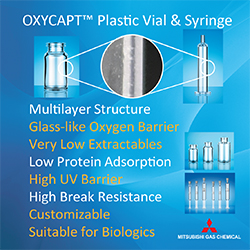Aeterna Zentaris Announces Notice of Allowance for US Patent Covering AEZS-150 for the Potential Treatment of Chronic Hypoparathyroidism
Aeterna Zentaris Inc. recently announced that its licensor, The University of Sheffield, has received a notice of allowance from the USPTO for its patent application No. 16/608,611. The patent application titled, Parathyroid Hormone Fusion Polypeptide, includes claims intended to cover the company’s development candidate AEZS-150, and certain analogs.
A Notice of Allowance is issued after the USPTO makes the determination that a patent should be granted from an application. A patent from the recently allowed application is expected to be issued in the coming months.
“As we continue to advance our DC-PTH program in collaboration with The University of Sheffield, we are pleased to bolster its intellectual property portfolio. This soon-to-be-issued patent is expected to provide protection for our development candidate AEZS-150 through at least 2038,” commented Dr. Klaus Paulini, Chief Executive Officer of Aeterna.
Aeterna’s lead development candidate, AEZS-150, is a proprietary fusion protein consisting of a modified growth hormone binding protein (GHBP) linked to parathyroid hormone PTH1-34 with the goal to provide a PTH analog with delayed clearance of one or two weeks. AEZS-150 is in pre-clinical development for the potential treatment of chronic hypoparathyroidism in adults.
Primary hypoparathyroidism is an orphan indication in the field of endocrinology. It is an uncommon condition in which the body produces abnormally low levels of PTH. PTH is a key regulating hormone essential for calcium homeostasis and renal phosphate clearance for maintaining a balance of those two minerals in the body. Untreated, primary hypoparathyroidism will cause, among other effects, renal dysfunction, muscle cramping, twitching, seizures, and cardiac arrhythmias. Approximately 23 to 37 in every 100,000 individuals in Europe and the US are estimated to suffer from hypoparathyroidism.
Aeterna Zentaris is a specialty biopharmaceutical company developing and commercializing a diversified portfolio of pharmaceutical and diagnostic products focused on areas of significant unmet medical need. The company’s lead product, macimorelin (Macrilen), is the first and only US FDA and European Commission approved oral test indicated for the diagnosis of adult growth hormone deficiency (AGHD). The company is leveraging the clinical success and compelling safety profile of macimorelin to develop it for the diagnosis of childhood-onset growth hormone deficiency (CGHD), an area of significant unmet need, in collaboration with Novo Nordisk.
Aeterna Zentaris is dedicated to the development of therapeutic assets and has recently taken steps to establish a growing pre-clinical pipeline to potentially address unmet medical needs across a number of indications, including neuromyelitis optica spectrum disorder (NMOSD), Parkinson’s disease (PD), hypoparathyroidism and amyotrophic lateral sclerosis (ALS; Lou Gehrig’s disease). Additionally, the Company is developing an oral prophylactic bacterial vaccine against SARS-CoV-2 (COVID-19) and Chlamydia trachomatis. For more information, visit www.zentaris.com.
The University of Sheffield is one of the world’s leading universities. A member of the UK’s prestigious Russell Group of leading research-led institutions, Sheffield offers world-class teaching and research excellence across a wide range of disciplines. Sheffield has six Nobel Prize winners among former staff and students and its alumni go on to hold positions of great responsibility and influence all over the world, making significant contributions in their chosen fields. Global research partners and clients include Boeing, Rolls-Royce, Unilever, AstraZeneca, Glaxo SmithKline, Siemens and Airbus, as well as many UK and overseas government agencies and charitable foundations.
Total Page Views: 783













